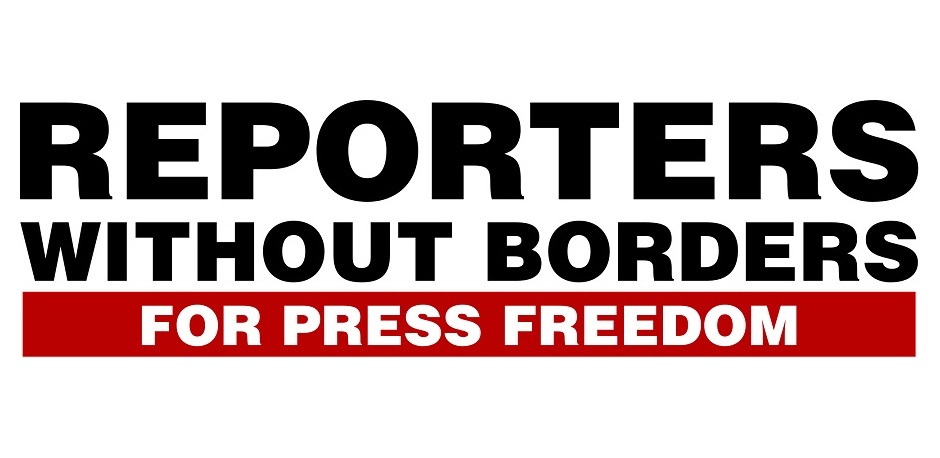SARAJEVO, 04.02.2018. – Freedom of expression represents one of the key foundations of democratic society, one of the basic conditions for its progress and development of every human being. Democratic political process and development of every human being represent the options for which the protection of freedom of expression is necessary.
Article 10 – Freedom of expression
1) Everyone has the right to freedom of expression. This right shall include freedom to hold opinions and to receive and impart information and ideas without interference by public authority and regardless of frontiers. This article shall not prevent States from requiring the licensing of broadcasting, television or cinema enterprises.
2) The exercise of these freedoms, since it carries with it duties and responsibilities, may be subject to such formalities, conditions, restrictions or penalties as are prescribed by law and are necessary in a democratic society, in the interests of national security, territorial integrity or public safety, for the prevention of disorder or crime, for the protection of health or morals, for the protection of the reputation or rights of others, for preventing the disclosure of information received in confidence, or for maintaining the authority and impartiality of the judiciary.
Therefore, paragraph 1 provides three components of right to freedom of expression, namely: right to opinion; right to receive the information and ideas and right to transfer the information and ideas.
Even though the article 10 of European Convention (EC) does not mention explicitly the freedom of press, the Court for Human Rights in Strasbourg has developed the extensive court practice establishing thereby the set of rules and principles which gives the press special status in enjoying of the freedoms contained in the article 10 which the domestic national courts are bound to follow.
Before national courts there are numerous civil suits for the slander (defamation) whereas the journalists, as authors of the text, are designated as a defendants and defend the „disputed research“ exactly by invoking the article 10, paragraph 1 of European Convention which guarantees free flow of information or protects the freedom of expression in its widest sense.
Therefore, it is necessary to determine in the proceeding, by acting judge, if the journalist has had the legitimate goal, whether the reasonable efforts were made in the verification of the facts, whether the journalist acted in good faith, if they expressed their personal opinions, were the published texts related to the public figure and other important circumstances from the that specific case in order to apply correctly the Article 10 European Convention.
Case-law – part of the judgment where the plaintiffs were rejected with their claim while it has been established that disputed expression was protected by Article 10, para 1 of European Convention:
Freedom of expression is not only by itself essential, but it plays the central role in protection of other rights defined by Article 10 of European Convention for Protection of Human Rights and Fundamental Freedoms. „Expression“ which is protected by the Article 10 is not limited to words, written or spoken, but it is also related to photos, audio and video recordings and activities with the objective of expressing the ideas or presenting the information. Furthermore, Article 10 European Convention does not protect only the content of information or idea but also the form of publishing through the internet. Freedom of expression includes the right to present the opinion, right to receive the information and ideas and to transfer those information and ideas.
It is true that the freedom of expression is not an absolute, however, pursuant to the judgement of the court, disputed texts cannot be subsumed under the Article 10, para 2 of the European Convention for Protection of Human Rights and Fundamental Freedoms, which presumes the limitation.
Namely, if the journalist has a legitimate goal, when it comes to something significant for the public and when the reasonable efforts were invested in verification of the facts, the media will not be held liable even in case that it turns out that the facts were untrue.
Even though the content of the disputed text was unpleasant or embarrassing for the plaintiffs, and the most for the third plaintiff, and disturbing due to published family photograph with minor children, the right to freedom of expression of the defendant may not be limited pursuant to the guarantee provided by the standards of Article 10 of European Convention.
The journalists have right to express which may insult, embitter or disturb, especially considering that it is about issues of interest for the public and when it is related to the public figures. The censorship in democratic society is scarce.
Namely, assessing the individual evidences and bringing it into the interrelation, the court considers that the text created on the basis of information the journalists received from their source and it is not about the gross negligence or desire to portray the plaintiffs in poor light. Satire and insults are allowed pursuant to the Law on Protection from Defamation and it presents the freedom of expression, therefore such a satire headings of texts are allowed……
From aforementioned, ‘’the width’’ of freedom of expression clearly stems, however it is not an absolute value and its limitation is prescribed in the paragraph 2, which points to the fact that local authorities in each state, as a contracting party, may interfere in the exercising their right to freedom of expression if the three cumulative conditions are met and such interference is prescribed by law; the interference has an objective to protect one or more interests or values, the interference is necessary in democratic society.
Case-law – part of the judgment where the plaintiffs claim was accepted since it has been established the expression of the journalist was defamatory, applying thereby the Article 10, para 2 of the European Convention:
The Court found that the mentioned text contains the gross accusations against the plaintiff which go over and beyond the limits of permissible expression and since the defendant have not presented a single evidence to prove that he acted in good faith which could prove that accusations were not published merely to cause the damage to the plaintiff. There are facts in the text that could be verified and the defendants disclosed, without verification, it in the text with untrue statements and presented the plaintiff as a person who acted contrary to appropriate rulebooks and programs and who approved the financial assistances to the companies which were not registered in the ITA BiH Register. Defendants mention in the text namely the actions which are defined as „huge malfeasances/frauds“ and the plaintiff is portrayed as a person who, under the veil of such frauds, used money of the Federation of BiH budget beneficiaries. Since for this content of text, the defendant has not offered any proof from which it could be inferred that the information were verified or checked, that there was a good will or negligence in such action, the court found that the plaintiff was defamed by the text from February 9, 2015.
This court was of the opinion that such a decision of the court was a «necessary measure in a democratic society», that it has the goal to «protect the reputation or right of others» and that making of such decision does not violate the right to freedom of expression from Article II/3.h of the Constitution of Bosnia and Herzegovina (Annex IV to General Framework Agreement for Peace in Bosnia and Herzegovina, initialled on November 21, 1995 in Dayton and signed on December 14, 1995 in Paris, when it came into force) and Article 10 of the European Convention for Protection of Human Rights and Fundamental Freedoms, which prescribes that every person has the right to freedom of expression but the realisation of these freedoms, since it includes the obligations and responsibilities, may be subject to certain conditions and limitations, which are necessary in democratic society and that specific quotes and statement in the disputed text go over and beyond the limits of the protection in the mentioned principle.
This decision of the court does not undermine the balance that should always exist between the right to freedom of expression as guaranteed by European Convention and the rights of the individual to protection of his reputation, which is protected by Article 10, para 2 of European Convention, moreover that the mentioned article of European Convention does not protect disclosure or publication of information which accuse a specific person for certain criminal acts without valid and convincing proof.
It should be highlighted that the primary objective of the Convention is that the national, domestic courts apply its provisions in manner as it was developed through the case-law and jurisprudence of European Court. European Court must be the last resort. That is exactly why the national courts are the first and the most significant instance where smooth and undisturbed realisation of the right to freedom of expression is secured and where it is provided that potential limitations do adhere to the requirements established by the Article 10, para 2 of the European Convention.
When the national courts are faced up with the contradictions and inconsistencies in the national laws, the judges must apply those regulatory provisions which serve best and secure undisturbed enjoinment of freedom of expression. Additionally, all the national laws individually must be interpreted and applied in accordance with jurisprudence and principles of the European Court for Human Rights and, in case of inconsistencies, the European law prevail.
 This article has been produced as a part of the project Western Balkan’s Regional Platform for advocating media freedom and journalists’ safety with the financial assistance of the European Union. The contents of this article are the sole responsibility of the Independent Journalists’ Association of Serbia and its authors, and can in no circumstances be regarded as reflecting the position of the European Union.
This article has been produced as a part of the project Western Balkan’s Regional Platform for advocating media freedom and journalists’ safety with the financial assistance of the European Union. The contents of this article are the sole responsibility of the Independent Journalists’ Association of Serbia and its authors, and can in no circumstances be regarded as reflecting the position of the European Union.








